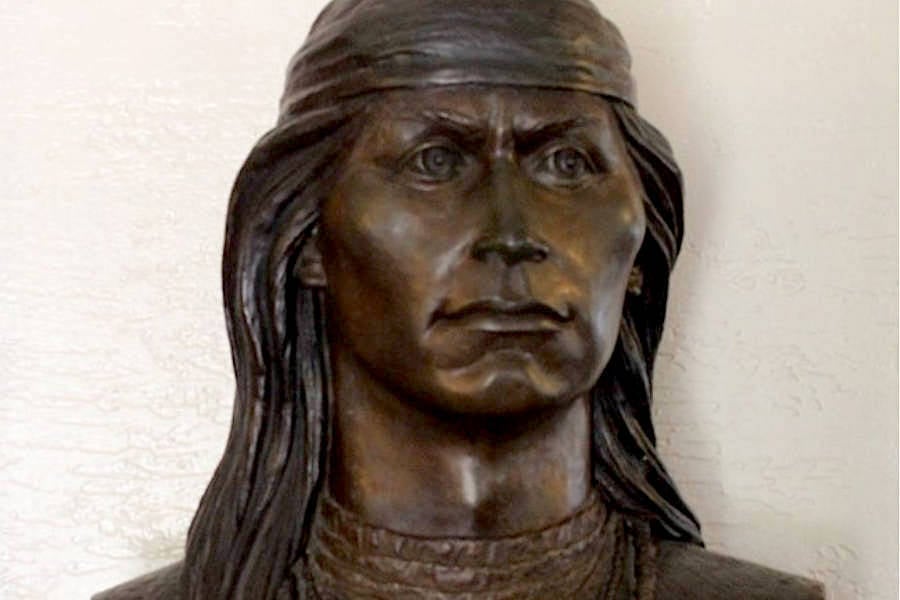Cochise: The Native American Warrior Who Escaped Imprisonment

Fort Bowie National Historic Site/FacebookA bust of Cochise at the Fort Bowie National Historic Site.
While he’s remembered as one of the most formidable Native American warriors, not much is known about Cochise. His birth year remains unknown, and nobody is sure where he was buried. But certain things about him are crystal clear, such as his lifelong fight for the freedom of his people.
He was born among a band of Apache known as Chokonen-Chiricahua in the early 1800s in either modern-day northern Mexico or southern Arizona. The Apache had lived there long before the Spanish ever arrived. But now, they were navigating Mexican authorities, who placated the Chiricahua with food rations for years — until they suddenly stopped feeding them in 1831.
Desperate for survival, the tribe raided their food stockpiles. Mexican retribution saw Cochise’s father killed, fueling his hatred of Mexican and European authorities. Still, Cochise was a peaceful man at heart who managed to avoid violence for years, until he was arrested by the U.S. Army.
It was 1861 when Irish-American rancher John Ward accused Cochise of kidnapping his son. The charge was largely baseless as Ward hadn’t even been in the area when his son vanished. Regardless, Lieutenant George Bascom arrested Cochise and some of his family members. The enraged Apache escaped by slashing his way out of the tent that he was held in.
Bascom’s men kidnapped more of Cochise’s family members in hopes of recapturing Cochise. But Cochise responded by kidnapping several white settlers in hopes of negotiating his family’s release. Tragically, both sides ended up murdering their hostages in the end. Cochise then joined his father-in-law Mangas Coloradas on a series of battles between the Chiricahua and the Americans — which would last 11 years.
The Chiricahua had two invaluable advantages: being more accustomed to the harsh southwestern terrain than their enemies, and most white settlers being distracted by the Civil War. Victories across skirmishes like the Battle of Dragoon Springs made it appear as though the Apache were winning.
But then, Coloradas was lured into a meeting by Union Army officials in 1863 — where he was killed. Shortly thereafter, Cochise was convinced to give up the fight by his only white friend Thomas Jeffords. In the end, Cochise accepted a U.S. peace treaty in 1872. He lived on the newly formed Chiricahua Reservation until he died by natural causes in 1874.





